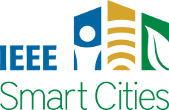Foreword: Data Analytics for Smart Cities Part 2
Written by Guest Editor Qi Hong Lai
It has been a pleasure to organise the Special Issue on Data Analytics on Smart Cities – Part 1 published in November 2022, and now Part 2 for the January 2023 IEEE Smart Cities eNewsletter. Needless to say, data analytics for smart cities is very important, as reported in many publications. As part of my work, I have co-authored Smart Energy for Transportation and Health in a Smart City published by Wiley and IEEE Press in December 2022 and Smart grids and big data analytics for smart cities published by Springer in November 2020.
The first book explores elements of a smart city based on the advancement of information and communication technology. The second delves deeper with examples of how the Internet of Things, big data analytics, and trading models can improve various smart city domains such as enabling better healthcare, a low-carbon economy, and improved road safety.
Four articles have been selected for this issue to further demonstrate the need to strengthen data analytics.
The first article, “Green federated learning: Optimized communication costs for Smart City applications,” is written by Pao-Ann Hsiung, John A, Sapdo Utomo, and Adarsh Rouniyar. Generally speaking, federated learning applications require increased energy consumption. To counteract this, the authors introduce the concept of green federated learning, which enables the optimization of communication costs and reduction in energy consumption in various federated learning smart city applications.
The second article, titled “The Vision of Smart Cities as a means for Implementing Smart Nuclear Security” is written by Miltiadis “Miltos” Alamaniotis. There is no question that nuclear security is one of the greatest concerns for all. The proper detection, identification, and localization of nuclear materials are essential to reducing potential risks. In this article, data analytics for implementing smart nuclear security within the vision of smart cities is explored.
The third article is titled “Data Analytics using Open Source Tools for a Smart City Situational Awareness Solution at the Edge.” A computer vision (CV)-based Security-as-a-Service Smart City Solution using artificial intelligence/machine learning (AI/ML) is proposed. An AI-assisted, multi-camera Smart City Solution for monitoring vehicular and walkway traffic is deployed.
The final article is “Trustworthy AI and Federated Learning for Sustainable Smart Cities” by Pao-Ann Hsiung, Sapdo Utomo, John A, Adarsh Rouniyar, Hsiu-Chun Hsu, Guo Hao Jiang, Chang Chun Hao, and Tang Kai Chun. Artificial intelligence has been applied to smart city research and development for several years, however, the credibility of some results is still an issue for decision-making. In this article, eight criteria for trustworthy AI systems are discussed and federated learning may minimise some of the difficulties.
This special issue should provide readers with useful information about the field of data analytics for smart cities to promote a higher level of understanding and interest. Enjoy the read!
This article was edited by Bernard Fong.
To view all articles in this issue, please go to January 2023 eNewsletter. For a downloadable copy, please visit the IEEE Smart Cities Resource Center.

To have the eNewsletter delivered monthly to your inbox, join the IEEE Smart Cities Community.
Past Issues
To view archived articles, and issues, which deliver rich insight into the forces shaping the future of the smart cities. Older eNewsletter can be found here. To download full issues, visit the publications section of the IEEE Smart Cities Resource Center.



